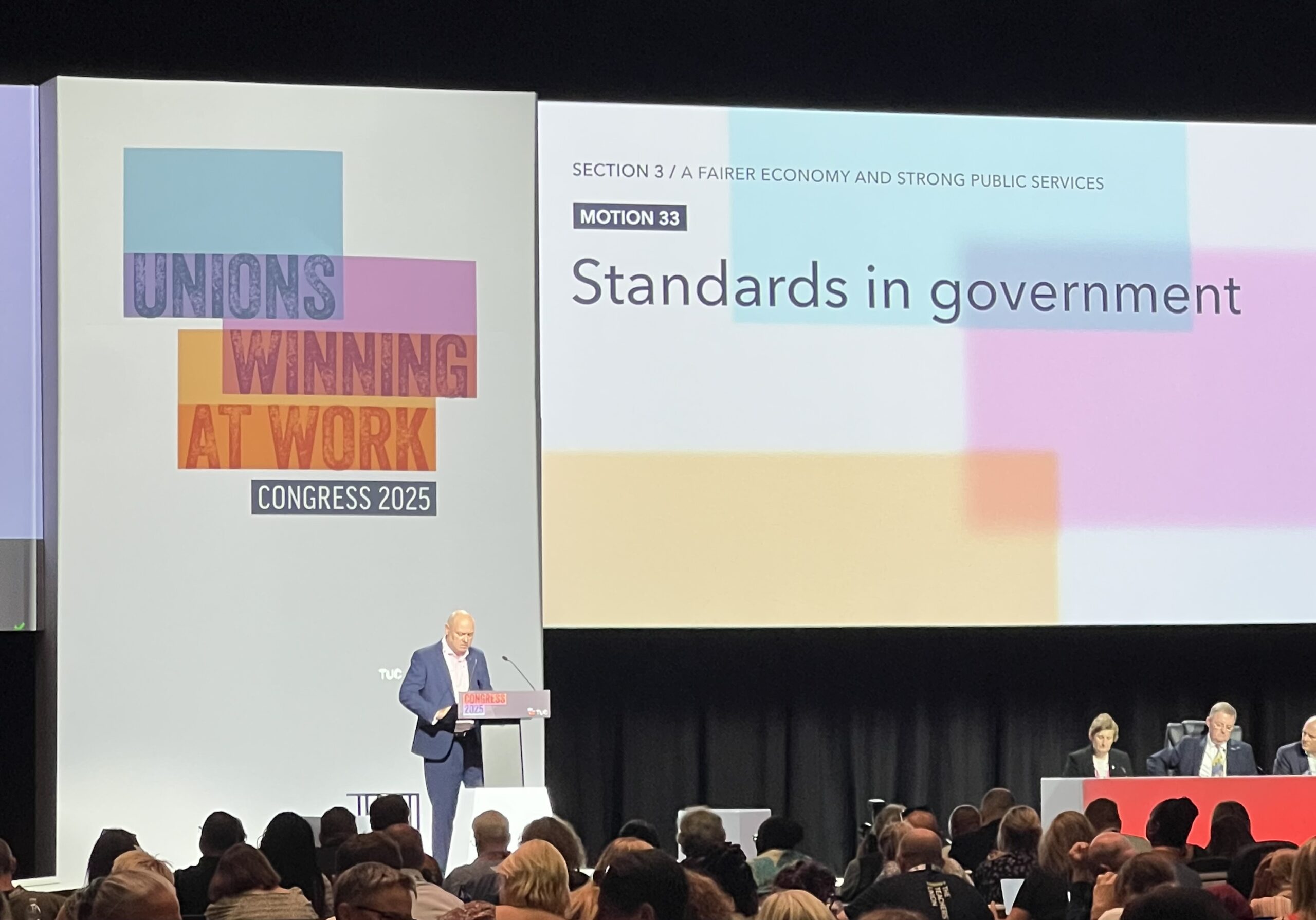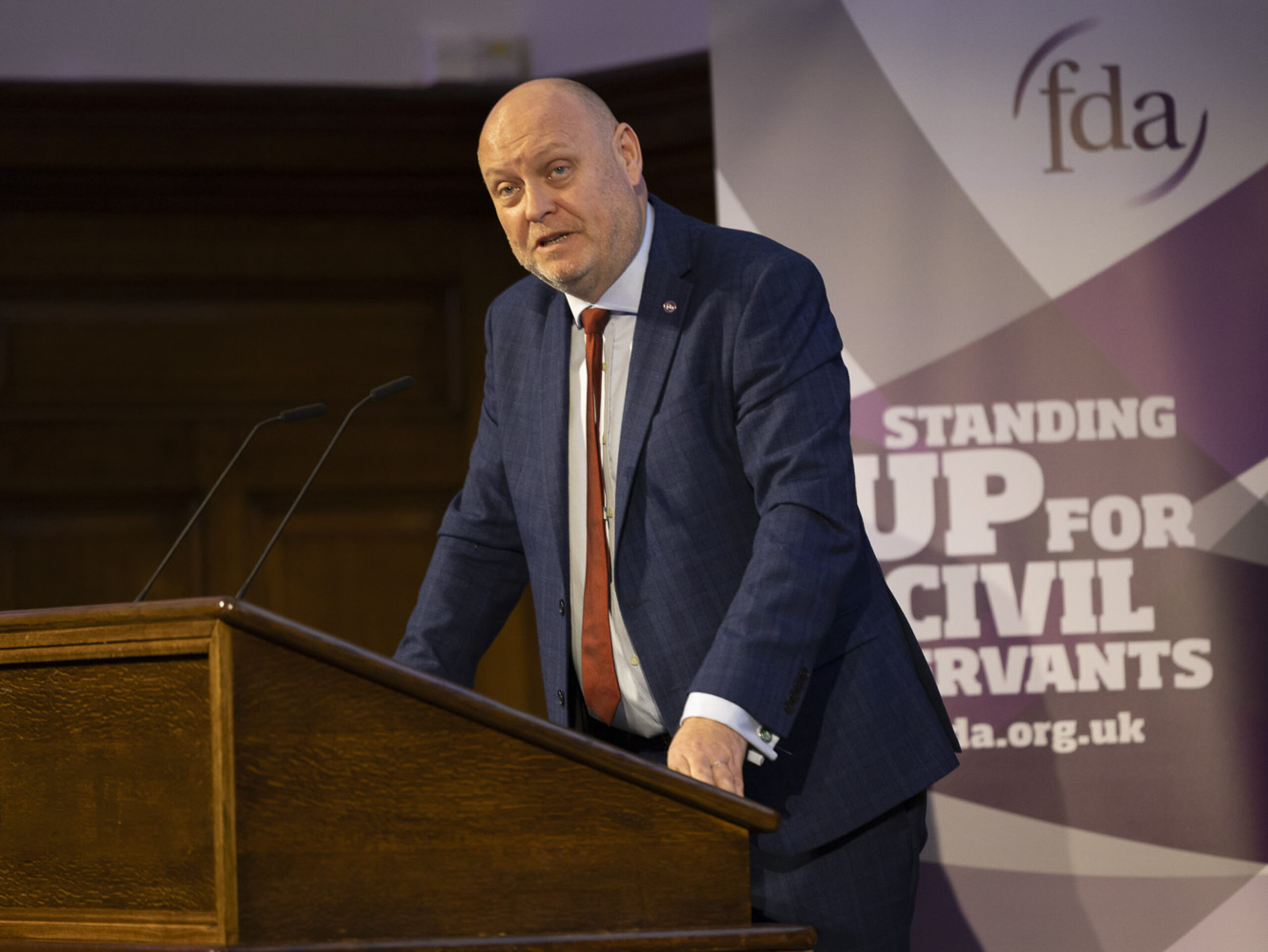FDA calls for Secretary of State to provide Ministerial Direction to NICS

The FDA has written to the Secretary of State for Northern Ireland, Chris Heaton Harris, calling for him to issue a Ministerial Direction to the Northern Ireland Civil Service (NICS).
The letter from FDA General Secretary Dave Penman highlighted the impossible situation in which civil servants in Northern Ireland have been placed due to the absence of an Executive at Stormont. Penman highlighted that the upcoming budget would likely see officials asked to operate beyond the scope of their advisory role by making political decisions, and risked bringing the impartiality of the NICS into question.
As reported by the Belfast Telegraph and BBC News, Penman told the Secretary of State:
“The current model places our members in an invidious position, requiring politically-impartial advisors and administrators to adopt a role that demands they take political decisions. Members’ professionalism and commitment to Northern Ireland is such that they are, I know, doing their best to take decisions where they judge it to be in the public interest to do so, in line with the guidance which your department has provided, but the position you have opted to place them in is entirely wrong.
He continued:
“FDA members who are Accounting Officers, and those who support them, are being tasked by you to implement this challenging Budget, requiring exceptionally difficult decisions to be taken which fall far outside the scope of what should be decided by officials operating without the direction and control of a minister. Whilst many of those decisions will be significant and controversial, they also present a serious risk of causing detrimental impacts to the most vulnerable in society in Northern Ireland, including children, young people and those relying on the health service.”
Penman argued that these decisions ought be left to democratically elected ministers, in line with the guidance on decision making issued by the Northern Ireland Office, which states that “some decisions should not be taken by civil servants without the direction of elected Ministers… Any major policy decisions, such as the initiation of a new policy, programme or scheme, including new major public expenditure commitments, or a major change of an existing policy, programme or scheme, should normally be left for Ministers to decide or agree.”
Penman called on Heaton-Harris to take action to avoid compromising the NICS:
“The FDA would respectfully ask that you legislate to amend the provisions of the Northern Ireland (Executive Functions) Act 2022, to empower a minister from your department to provide Ministerial Direction to NICS colleagues so that decisions of a political nature are taken at the right level, with suitable demoratic accountability, rather than by civil servants acting in the absence of ministers.”
Addressing FDA members in Northern Ireland, the General Secretary said “the FDA will always speak for our members where you are unable to do so, and we will always defend the impartiality of the NICS from efforts to undermine one of its core values.”
The FDA’s letter was also reported on by BBC Radio Ulster and BBC Radio Foyle.
Related News
-

“Significant gaps” in current Northern Ireland standards regime, says Murtagh
FDA National Officer for Northern Ireland Robert Murtagh has called for a strengthened standards regime in Northern Ireland government.
-

FDA delegation attends TUC Congress 2025
This week, the FDA attended the 2025 TUC Congress in Brighton. FDA delegates spoke to and moved motions on a range of topics, including standards in government, public sector productivity, resilience, neurodiversity in the workplace, and TUC reform.
-

Ministers must “step up to the plate” or risk undermining the civil service, says Penman
The FDA has defended the pay and pensions of senior civil servants and called for ministers to do more to defend the civil service.